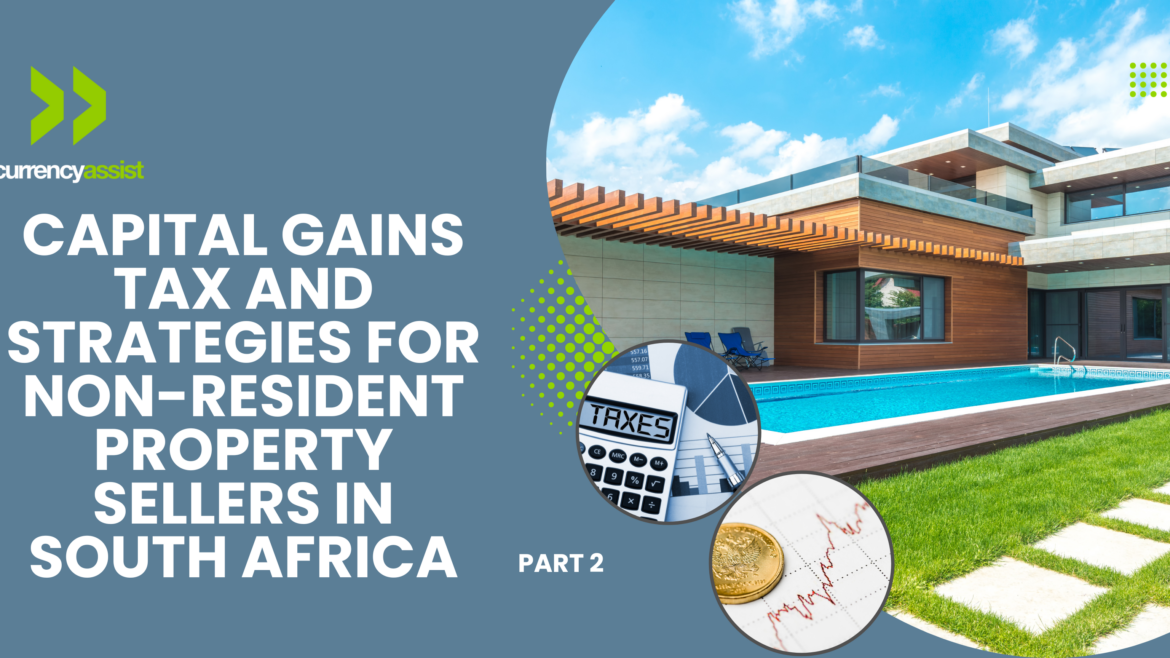In the second part of our series on non-resident property ownership in South Africa, we will delve into the intricacies of Capital Gains Tax (CGT) and share valuable strategies for non-resident property sellers.
When the time comes to sell your South African property, it is important to understand how CGT applies to non-residents. If your property is worth more than R2 million, the conveyancers are legally required to withhold the CGT you owe on the proceeds of the sale. This tax must be paid to the South African Revenue Service (SARS) to complete the property transfer.
To be classified as a non-resident, you must meet specific criteria. This means you cannot be ordinarily resident in South Africa, and you must not meet the requirements of the “physical presence test.” This test involves being physically present in South Africa for specific periods, with the threshold being more than five years, which would result in becoming a tax resident in the sixth year.
The distinction between resident and non-resident sellers is significant. South African residents must pay CGT on the sale of any capital asset (world wide), while non-residents only pay CGT on the sale of immovable property in South Africa.
A crucial aspect of selling property in South Africa as a non-resident is managing withholding tax. If your property’s value exceeds R2 million, withholding tax is applied. The amount withheld varies based on your status as an individual, company, or trust.
To avoid overpaying, you can take steps to request a lower or zero withholding tax rate. Instruct the attorney handling the property transfer to apply for a tax directive from SARS. This can significantly reduce the withholding tax amount and save you from the hassle of claiming a refund later. Remember that both the seller and purchaser must be registered taxpayers with SARS, and both parties must submit a transfer duty declaration to obtain a transfer duty receipt or an exemption certificate from SARS.
Additionally, it is important to note that certain tax benefits, such as the annual R40,000 exclusion and a R2 million exemption for primary residences under the Income Tax Act, do not apply to non-residents.
When non-residents purchase property through a mortgage bond, banks typically offer a 1:1 ratio (50% loan to value), which means you can borrow an amount equivalent to your cash or assets introduced for the property purchase. However, if you don not have remaining South African assets, you may face a 50% loan-to-value lending restriction. To bypass this restriction, consider using South African private companies or trusts to buy properties, as they are seen as resident entities.
In conclusion, by understanding the tax implications and applying the right strategies, non-resident property owners can make informed decisions and enjoy their investments to the fullest. Happy property selling!

